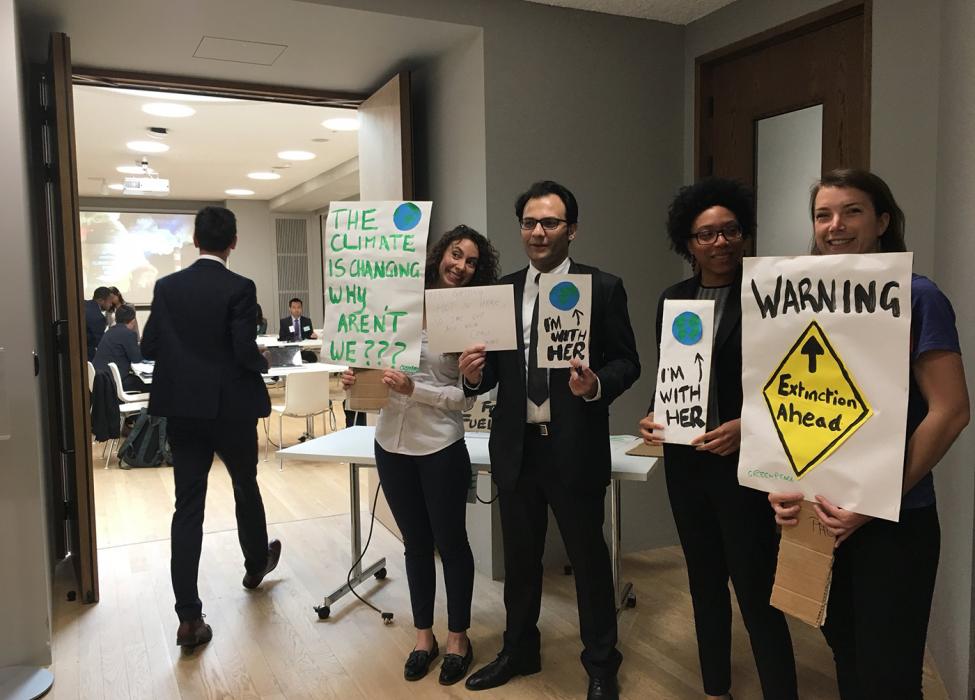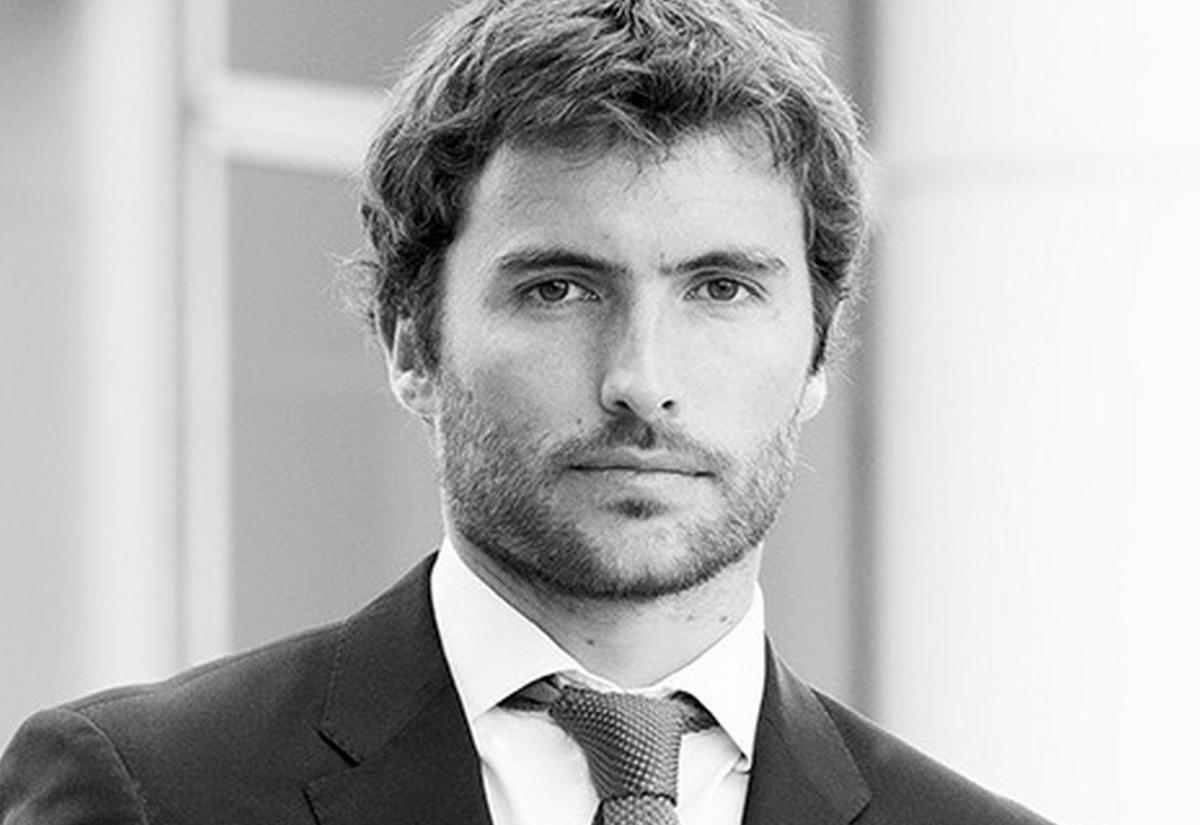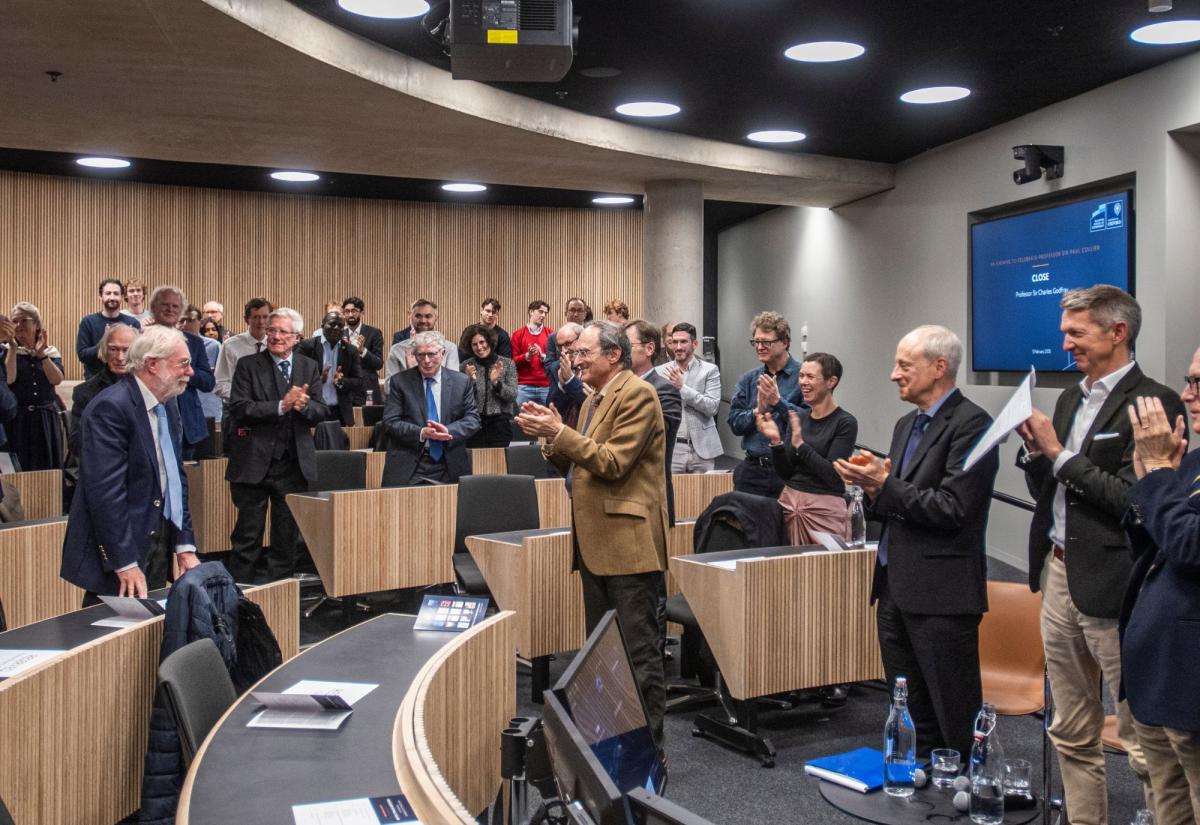
Bringing together all the practical skills and policymaking strategies developed throughout the Master of Public Policy (MPP), the ‘Policy Challenge’ simulations are an exciting, hands-on end to the term. For two days, our MPP students took to the negotiating table to address international policy issues and experience the dynamics of multilateral negotiations and interest group politics.
As ever, the topics were selected to be both current and highly complex. This year’s course simulated the ongoing Brexit negotiations following the triggering of Article 50, the 24th Session of the Conference of the Parties to the United Nations Framework Convention on Climate Change ahead of the negotiations in Poland and the final stages of the Trans-Pacific Partnership negotiations in 2015. Several weeks of intensive preparations led up to the simulations, overseen by faculty members Dr Thomas Hale, Dr Emily Jones, Professor Karthik Ramanna, Dr Adam Webster and Professor Jo Wolff.
Input from expert practitioners allowed students to fully immerse themselves in the topics and acquire the detailed background knowledge required for success, as well as gaining further insights into effective negotiating techniques. The high-level visitors included Philip Rycroft, Permanent Secretary at the Department for Exiting the European Union; Peter Betts, Director for International Climate Policy, Ministry for Business, Energy, and Industrial Strategy; and Barbara Weisel, Former US Chief Negotiator for the Trans-Pacific Partnership Agreement.
Taking on the role of key negotiators, students needed to form alliances with others, who may have competing or partially overlapping interests. This required them to negotiate both within a coalition and with other groups to achieve a policy outcome that served their interests.
The technical knowledge necessary for convincing negotiating was another of the most challenging aspects of the module. “The subjects themselves are very complicated, and you have to understand different countries’ viewpoints. In terms of defining your own position, there are two stages, as you first need to work out what you yourself think about the issue, and then decide what you in your role think,” commented MPP student Sara Man Tse. Strategic thinking, bargaining and teamwork are further skills required, as Umar Nadeem, who took on the role of Chief Negotiator for New Zealand in the trade negotiations, recognised.
“To be successful you need to establish your priorities in advance; your red lines as opposed to areas where you can be flexible and concede a cost in order to get a benefit.”
The chance to apply theory in practice also encouraged the students to think more globally about international relations, looking ahead to how their conduct could have an impact on future interactions. “Although you need to get the best possible deal for your country, you also have to maintain your country’s credibility and think about how it is perceived by others. There’s a balance to strike between defending your interests now and ensuring a favourable position in future negotiations,” explained Abdelrahman Faki Omer.
Beyond the MPP, the skills learnt throughout the year and practised during the two-day event will help students in their careers as leaders and policymakers. Emokiniovo Akpughe, a medical doctor planning to move into the area of health policy after the course, found the experience of the simulations very enlightening.
“One of the main things I realised was how far geopolitics is involved; the trade negotiations go beyond technical issues around tariffs. We’ve been able to apply what we learnt about negotiating in the applied policy module, and these skills will definitely be useful in my future career.”



